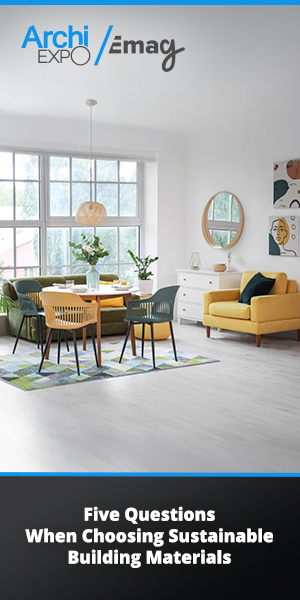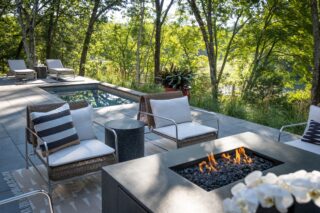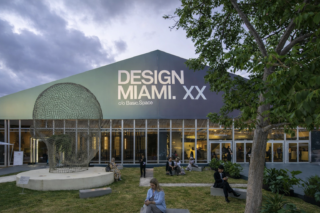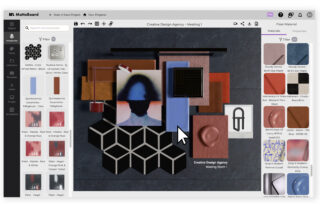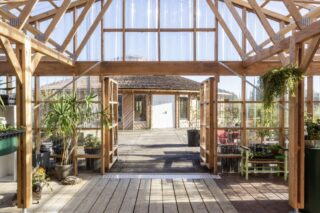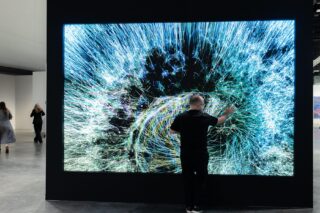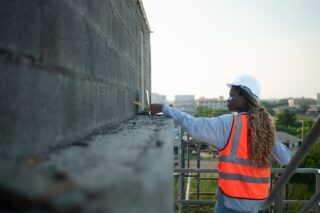Framery is revolutionizing sustainable office design by launching the world’s first fossil-free steel workplace products, combining circular economy principles, advanced modular design, and smart technology to meet stringent environmental goals.
Framery, a Finnish company renowned for its innovative soundproof office pods, has announced a bold new initiative that could reshape the future of sustainable office design: the launch of workplace products made from fossil-free steel. This breakthrough is part of Framery’s comprehensive environmental strategy to reduce product life cycle emissions by 50% by 2028, aligning with the 1.5°C target set by the Paris Agreement. As businesses and architects alike seek to create adaptable, eco-conscious spaces, Framery’s pioneering approach could set a new standard for sustainable office solutions.
A Vision for Sustainable Workplace Solutions
Framery has long been a leader in addressing noise challenges and privacy issues in open-plan offices, which are common pain points in today’s hybrid work environments. With the shift toward fossil-free steel, the company now aims to produce not only soundproof and private spaces but also those that align with circular economy principles.
READ “How Sweden Delivered The World’s First Fossil Fuel-Free Steel” published in Forbes in 2021.
The innovation behind these fossil-free steel pods combines high-quality, recycled, and renewable materials with Framery’s modular design. The result is a product with an impressive 23% reduction in material usage and a 16% decrease in carbon emissions during production, compared to traditional meeting rooms. By incorporating mono-materials instead of composites, the new pods also offer 100% recyclability, ensuring that the product’s lifecycle is as sustainable as possible from start to finish.

“We are committed to driving the future of sustainable workplace design through continuous improvement and bold new materials,” says Framery’s CEO, Samu Hällfors. “This launch is about leading by example—our aim is to show that carbon-conscious products can meet the highest standards of quality and performance.”
Circular Design and Modularity: Building for Longevity
The fossil-free steel pods are the latest milestone in Framery’s circular design journey. The company’s approach to design centers on three critical areas: durability, material efficiency, and lifecycle management. Built around a lightweight steel chassis, the pods are engineered for a lifespan measured in decades, with a modular structure that enables components to be easily replaced, refurbished, or relocated. This adaptability not only lowers the environmental impact associated with new material production but also increases the pods’ lifecycle value for users.
Framery’s circular design philosophy extends beyond the materials used. The company’s “Framery Subscribed” leasing program allows pods to be refurbished, redistributed, and reused across multiple lifecycles, maximizing both environmental and economic value. For companies aiming to reduce waste and meet sustainability goals, Framery Subscribed presents a viable solution to adopt circular economy practices in their workspace design.
In 2023 alone, the program saw 14% growth, with the refurbished pods making a strong debut in several European markets.
“We’re finding that clients are not only open to the concept of leasing but increasingly see it as a sustainable, economical choice,” explains Hällfors. “As sustainability regulations tighten, more companies are seeking solutions that align with the circular economy model. Framery Subscribed ensures our pods serve multiple users over their lifecycle, reducing waste and maximizing efficiency.”

Smart Pods and Digital Integration: Usability Meets Sustainability
In addition to its fossil-free materials, Framery is pioneering a digitally connected workspace through its new “smart pod” technology suite. The company’s Framery Connect system, embedded with sensors and occupancy tracking, provides real-time usage data, allowing facility managers to optimize their office layout based on actual demand. For large organizations, where efficient use of space translates to reduced operational costs, this functionality supports both productivity and sustainability.
Integrated with an easy-to-use app, Framery Connect allows employees to reserve pods or navigate to available meeting spaces in seconds. This real-time connectivity not only enhances the user experience but also democratizes access to quiet, collaborative spaces, helping companies manage workspace congestion and streamline operations.
The benefits extend to facility management, where digital data on pod usage can reveal patterns that inform office configuration, minimizing the environmental impact of underutilized spaces. Studies have shown that over 40% of employees spend more than 30 minutes a day searching for a place to collaborate or concentrate, which can lead to frustration and reduced productivity. Framery’s technology suite addresses this challenge by aligning space availability with actual user needs, ultimately enhancing employee satisfaction and well-being.


Environmental Commitments and Measurable Goals
Beyond innovating individual products, Framery is committed to an overarching sustainability framework that includes science-based targets and transparent reporting. Since joining the Science Based Targets initiative (SBTi) in 2020, Framery has set ambitious goals: a 50% reduction in Scope 1 and 2 emissions by 2030 from its 2018 baseline and a target to cut Scope 3 emissions (which account for 99% of Framery’s total emissions) by half by 2028. These reductions are achieved through innovative materials, streamlined production processes, and sustainable logistics, as well as through the implementation of renewable energy and fossil-free steel.
The company’s efforts toward circularity are guided by ISO 14001-certified environmental management, with close collaboration with suppliers to maintain high environmental standards. All suppliers are required to adhere to strict guidelines, such as holding FSC or PEFC certifications for materials like plywood. This ensures that Framery’s entire supply chain supports its environmental objectives, further minimizing resource depletion, waste, and emissions.
Framery has also conducted Life Cycle Assessments (LCAs) to quantify the environmental impact of each product across its lifecycle, from material extraction to end-of-life recycling. The results, published in Environmental Product Declarations (EPDs), show that Framery pods outperform traditional meeting rooms over a 20-year lifespan, generating 30% fewer emissions than their built-in counterparts. In particular, Framery’s compact pod model, Framery One Compact, saves up to 42% in emissions relative to standard-built meeting rooms.
A Blueprint for Sustainable Office Design
Framery’s fossil-free pods are more than an eco-friendly product; they represent a shift toward a holistic, sustainability-focused approach to office design. By prioritizing circular economy principles, integrating advanced technology, and setting rigorous emission reduction targets, Framery provides a model that design and architecture professionals can adopt to create workspaces that are both functional and environmentally responsible.
As regulations evolve and demand for sustainable building materials rises, Framery’s move to fossil-free steel marks a pivotal development for the industry. The combination of durability, digital integration, and responsible sourcing offers architects, designers, and companies a clear path to reducing their carbon footprint without compromising on quality or aesthetics.
Through its commitment to innovation and transparency, Framery has positioned itself as a frontrunner in sustainable design, encouraging other manufacturers to follow suit. For the architecture and design communities, the emergence of fossil-free steel products offers new opportunities to lead the charge in sustainable office design and build a future where workplaces benefit people and the planet alike.

